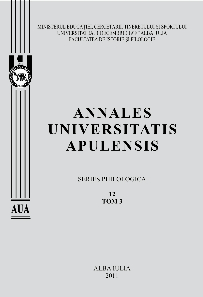EST in the Academia: Discourse Communities and their Genres
EST in the Academia: Discourse Communities and their Genres
Author(s): Sonia MunteanuSubject(s): Literary Texts
Published by: Universitatea »1 Decembrie 1918« Alba Iulia
Keywords: Genres; discourse community; discipline specific discourse; ESP; EAP
Summary/Abstract: The present investigation focuses on the discourse of hard sciences and engineering from the perspective of LSP and professional discourses. It is a comparative case-based study of the genres of academic engineering discourse and the genres of academic linguistic discourse, as well as the discourse communities that produce them. If genres are functional and structural units that run across disciplines with a consistent degree of formality and display remarkable popularity across most academic communities, then the task of identifying inconsistencies and possibly wider variation in the prototypicality is a challenging one. But where should one look for the source of such variation? The answer was offered by Swales (1990) who pointed out that in identifying and analyzing genres the most important source of insight is the very community that uses them. This study will look at the nomenclature of genres published in academic and professional journals of two disciplines – linguistics, more accurately languages for specific purposes, and engineering, that is, Mechatronics. The genres identified are discussed from the point of view of the labels they were given, and the meaning as it appears to be understood from the instructions and guide to possible contributors. A prominent place is given to the research paper and to the percentage of research papers published by each journal. In close relationship with the genres used, two concepts are explored: discourse community and discipline specific discourse. Discourse communities bring an ethnographic perspective on genre understanding. The study of discourse communities contributes to completing a more comprehensive view on professional communication and on discipline specific discourse. They are a necessary link in the complex interaction of social context and language use. Here, sociocultural theory intervenes and claims that discourse communities are first ‘communities of practice’, while the results of such conventionalized practices upon language use are the genres that communities produce, refine and perpetuate. Another related concept that arises from the study of social content, speakers and language use is that of ‘discipline specific discourse’. Recently, a large number of studies have focused on disciplinary variation in both discourse analysis and genre analysis. It has become an almost compulsory component in the investigation of English for Academic Purposes and English for Specific Purposes. An important role in the development of in-depth analyses of features that render the linguistic communication of a group of professionals as ‘specific’ to that discourse community has been played by corpus-based studies. The availability of computer programs to perform quantitative and qualitative investigations has contributed to identifying specific linguistic and rhetorical features as well as co-occurrence patterns in various disciplines. This seems to be the promise of new trends in English for
Journal: Annales Universitatis Apulensis. Series Philologica
- Issue Year: 12/2011
- Issue No: 2
- Page Range: 251-264
- Page Count: 13
- Language: English

